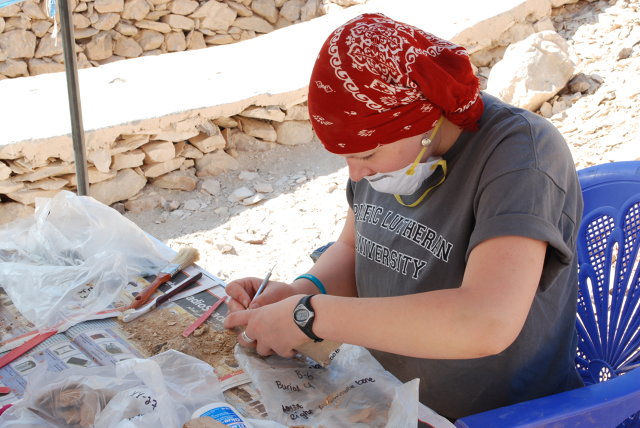It’s In Our Genes: A Survivor’s Quest To Unearth Ancient Patterns Of Cancer
Did cancer plague our ancestors who lived in centuries past? And if it did, what can doctors learn from that?
Kathryn Hunt was studying archaeology in college and doing digs of ancient burial sites in Egypt when, at 22, her studies were interrupted by the diagnosis of a Nerf ball-sized malignant tumor in her ovaries and immediate, aggressive treatment.

Today, four years later, she’s a bona fide survivor--and her passion for the field has taken a personal turn. A master's degree now in hand, she’s embarking on a major project to uncover the ancient history of cancer, a disease that's often assumed to be triggered by modern ills (even being called “purely man-made” by a few researchers).
“The impressive advancement of modern cancer research has been based on limited knowledge of cancer over several decades,” she says. “However, cancer was active in humans for hundreds of thousands of years before that.”
The field of “paleo-oncology” is not entirely new, but it is very small and scattered. For example, the researchers who concluded that cancer was a man-made disease did this on the basis of studying Egyptian mummies. While it may be true that cancer rates, in today’s time of smoking, toxic chemicals, and longer life expectancy, may be higher than the past, cancer is actually a very old disease, says Hunt. Hippocrates, ancient Greece's father of medicine, first named the disease. The possible earliest documented case in a human ancestor was 1.5 million year in Africa, and scientists have even found it in dinosaur fossils.

Hunt is now launching an organization, the Paleo-oncological Research Organization, that is working to compile and code for evidence of cancer in an online, open-source database that spans societies and eras. The long-term work will aim to answer unwieldy questions about how cancer has evolved, both culturally and biologically, over key historical periods. She wonders how cancer changed when humans became farmers, rather than hunters and gatherers, or once the Industrial Revolution truly got going.
“I realized that the reason why no one has done this work extensively is because there’s never been a foundation. There’s never been a jumping off point,” she says. She’ll be raising the profile of the discussion at a conference of archeologists this spring. Recent advances in DNA analysis will likely help her work along with researchers’ knowledge about all kinds of diseases in the ancient past, such as tuberculosis.
A recently named TED Fellow for 2014, Hunt is in full remission and plans to make this work her life’s contribution to combating a disease she wishes no one else would have to battle, especially at such a young age. “If we can get a better understanding of why cancer manifests the way it does, because of genetic, environmental, and cultural factors...that behavior might lead us to better treatment, better prevention, and better quality of life for those going through cancer,” she says.

No comments:
Post a Comment